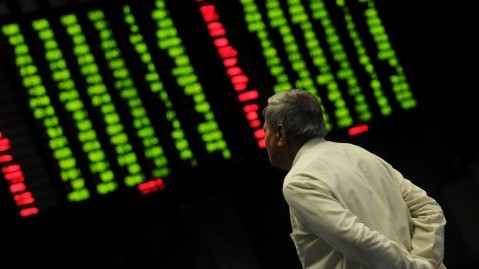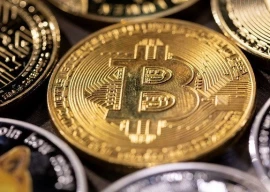
As shoppers in the US and Europe queued outside the brick-and-mortar stores to have an intimate shopping experience on Black Friday, they were totally unaware of an unprecedented development thousands of miles away in South Africa where discovery of a new Covid-19 variant plunged the global markets into an abyss on Friday in an unprecedented sell-off that was reminiscent to the pandemic era.
Before the new Covid-19 variant, now known as omicron, rattled the stock markets, equity investors were looking at the pandemic in the rear-view mirror as they were bracing to grapple with new challenges such as rising inflation which is spreading rapidly across the globe mainly due to supply chain disruptions. The prospects of an earlier-than-anticipated rate hike by the Federal Reserve had also spooked the markets, especially the technology sector. The US Consumer Price Index (CPI) for October clocked in at a surprising 6.2% against the projections of 5.9%. Last week, Americans ate the most expensive Thanksgiving dinner in history.
Back in Pakistan, the sudden interest rate hike of 150 basis points (bps) by the State Bank of Pakistan caught even the most hawkish analyst by surprise. After running out of options to curb the rising current account deficit, which touched $5.08 billion (4.7% of GDP), and putting a brake on devaluation of the rupee against the US dollar, which crossed Rs176 level, the State Bank of Pakistan reached out to the next available option in its toolkit.
The efficacy of tightening the monetary policy to curb supply-driven inflation has always been questioned by many economists. However, we have to at least appreciate the independence of central banks to take policy decisions in the wake of events that unfolded in Turkey last week. To recall, Turkish lira fell to historic lows after Turkish President Recep Tayyip Erdogan kept defending his unorthodox policy to cut interest rate despite inflation touching an alarming level of 20%.
The benchmark KSE-100 index has lost almost 10% of its value after hitting a high of 48,976 points in June 2021. Investors have been preparing themselves for the rising interest rate environment which may persist for a longer time than expected. Besides the risk of rising interest rates, the trend to move away from the stock market into the real estate sector has gathered pace thanks to the “no question asked” incentive by the government to promote fresh investment in the property sector. In addition, the regressive taxes and stringent documentation requirements never provided a level playing field to the stock market investors, making it a less favourable asset class despite the mind-boggling valuation and attractive dividend yield currently on offer.
As investors are seeking refuge from the rising interest rates, resurgence in Covid cases and omicron variant, the safe-haven assets such as gold, bonds and Japanese yen received modest bids in the trading session on Friday globally. Going forward, the banking stocks will remain in the limelight due to an increase in their net interest margins in the high-interest rate scenario. However, the highly leveraged sectors in Pakistan such as cement and steel will remain suppressed.
The silver lining that came with the omicron variant was the sharpest single day decline in the crude oil price since February 2020 (WTI down by 13%). This will give much-needed relief to the oil-consuming nations who had recently failed to bring down the oil price as they released millions of barrels of oil from their strategic reserves. The oil prices and stock markets may remain under pressure for a longer time due to renewed lockdown fears within Europe and travel restrictions after the discovery of the omicron variant as dozens of countries including the UK, Hong Kong, Singapore, and Japan have already banned all the flights from South Africa.
The writer is a financial market enthusiast and is attached to Pakistan’s stocks, commodities and emerging technology
Published in The Express Tribune, November 29th, 2021.
Like Business on Facebook, follow @TribuneBiz on Twitter to stay informed and join in the conversation.


1725612926-0/Tribune-Pic-(8)1725612926-0-165x106.webp)















COMMENTS
Comments are moderated and generally will be posted if they are on-topic and not abusive.
For more information, please see our Comments FAQ